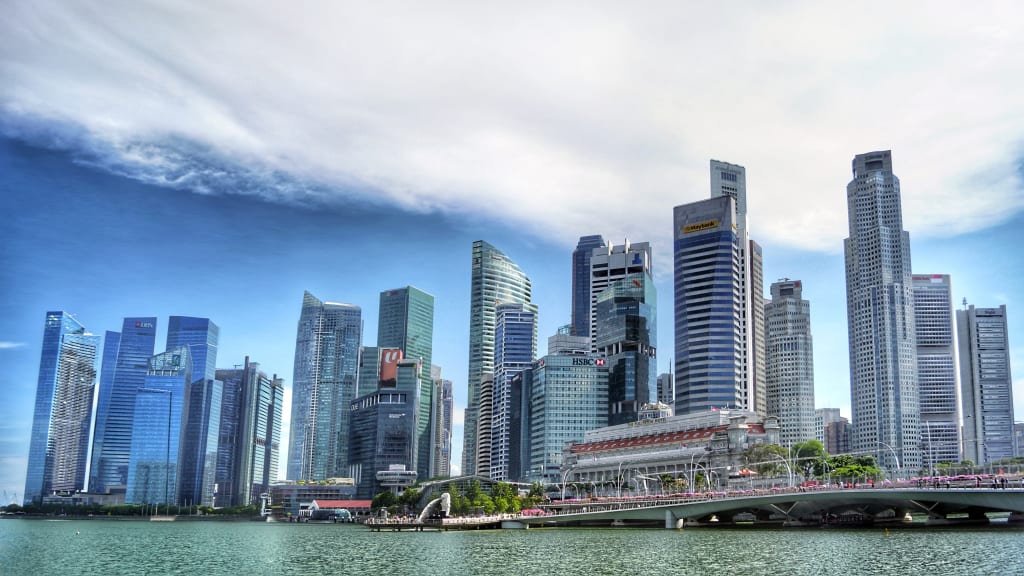The Urban Paradox
Health Basics in a Fast-Paced Concrete Jungle

City living can feel like navigating a complex maze. Amid the hustling and bustling urban jungle, the concept of health becomes obscured by looming skyscrapers, smoggy horizons, and perpetual time crunches. Yet, it’s the residents of these urban landscapes who most need to grasp and implement the essentials of health. Here, we’ll explore the fundamentals of health, navigating through the unique challenges urbanites face in achieving wellness.
Health: A Holistic Concept
First, it’s crucial to understand health is not merely the absence of disease. According to the World Health Organization (WHO), health is “a state of complete physical, mental, and social well-being and not merely the absence of disease or infirmity.” This broad definition places as much emphasis on emotional and social health as it does on physical health. It’s a comprehensive blend of maintaining a balanced diet, exercising regularly, ensuring mental well-being, and cultivating social connections.
Dietary Health in the Urban Landscape
City life presents an odd dietary paradox. On the one hand, urban environments often provide an array of culinary delights, from gourmet restaurants to food trucks offering global cuisines. On the other hand, they’re also riddled with fast-food outlets, ready-meals, and food desserts — areas where access to fresh, affordable food is limited. The high cost of living in cities often makes healthier food options seem prohibitive, pushing urbanites towards cheaper, unhealthy choices.
Navigating this complex food environment requires awareness and planning. Try incorporating more whole foods into your diet. These include unprocessed fruits, vegetables, whole grains, and lean proteins. Even if fresh produce is pricey or hard to come by, frozen options can be just as nutritious. Farmers’ markets can also offer affordable, local produce.

Exercise: The Forgotten Essential
The fast pace of city life often leads to a sedentary lifestyle. Long working hours and commutes often replace fitness activities. Yet, incorporating exercise into your daily routine doesn’t have to be daunting.
Urban areas offer unique opportunities for exercise that rural ones might lack — from well-connected public parks to diverse fitness classes and state-of-the-art gym facilities. Opt for walking or biking instead of driving for short distances. If time is a constraint, short, variable-intensity workouts, from group fitness programs can provide substantial health benefits.
Mental Wellbeing: The Silent Challenge
Amid the noise and vibrancy of city living, mental health often becomes a silent struggle. Stressors like high living costs, job pressures, traffic jams, and pollution can significantly impact your mental well-being. In this context, activities that promote mindfulness and stress relief become essential.
Develop a routine that includes practices like yoga, meditation, or simply setting aside time for hobbies and relaxation. Access to professional mental health services is often better in cities, so take advantage of counseling or therapy if you’re struggling. Remember, prioritizing mental health is not a luxury, but a necessity.

Social Health: Building Bridges in Concrete Jungles
Urban environments, with their density and diversity, can paradoxically create feelings of isolation and disconnect. Balancing work commitments with maintaining social relationships can be a challenge in the city’s fast-paced life.
However, cities also offer vibrant social scenes, cultural events, and diverse communities. Engaging in these social opportunities, volunteering, or joining community groups can help build meaningful connections and improve social health.
Environmental Health: Navigating Pollution and Urban Strains
Urban areas often suffer from environmental health issues like air pollution and noise pollution, which can have profound impacts on overall health. While individual control over these factors might be limited, there are measures you can take. Wearing masks on pollution-heavy days, using noise-canceling headphones, incorporating indoor plants that improve air quality, or ensuring regular visits to green spaces within the city can mitigate these factors.
Living in areas with heavy traffic can increase exposure to pollutants, so if moving is an option, choosing areas with better air quality and lower noise levels could be beneficial. Active involvement in local communities and support for policies aimed at reducing pollution can also contribute to a healthier urban environment.

Technology: A Double-Edged Sword
In today’s digital age, technology is a significant part of urban living, offering both challenges and opportunities for health. While the excessive screen time associated with high-tech jobs and digital leisure activities can lead to issues like eye strain, sedentary behavior, and disturbed sleep, technology can also be leveraged for health benefits.
Digital fitness platforms offer a wide variety of home workouts. Mental health apps provide resources for stress management and therapy. Nutrition tracking apps can help monitor dietary habits. Telemedicine enables virtual health consultations, making healthcare more accessible.
Overcoming Societal Pressure
Urban living often comes with societal pressure to conform to certain norms, which can impact one’s health choices. Fast-paced city life might glorify constant busyness, leaving little time for rest and self-care. Societal beauty standards might pressure individuals into unhealthy diets or extreme fitness regimes.
Resisting these pressures involves a conscious decision to prioritize health over societal expectations. It means respecting your body’s needs for rest, nourishment, and exercise. It’s essential to remember that health is individual — what works for one person may not work for another, and that’s okay.

A Final Note
Navigating health in an urban setting may be a complex balancing act, but it’s far from impossible. It requires conscientious choices, flexibility, and the willingness to prioritize one’s well-being amid the myriad demands of city living. Armed with the right knowledge and resources, you can turn the concrete jungle into a stage for health and wellness, making city living a health-boosting, rather than health-depleting, experience.
Remember, good health is the greatest wealth. It’s the pillar that supports every aspect of our lives, allowing us to be productive, creative, and happy. Embrace the journey to health as an adventure, a commitment, and most importantly, a gift to yourself.
Join our ActiveLife Society Telegram [here]
About the Creator
Eugene Lee
21 years in sport and fitness. Coaching and Education Authority. An advocate of social impact. Passionate about health, governance, and marginalized communities.






Comments
There are no comments for this story
Be the first to respond and start the conversation.